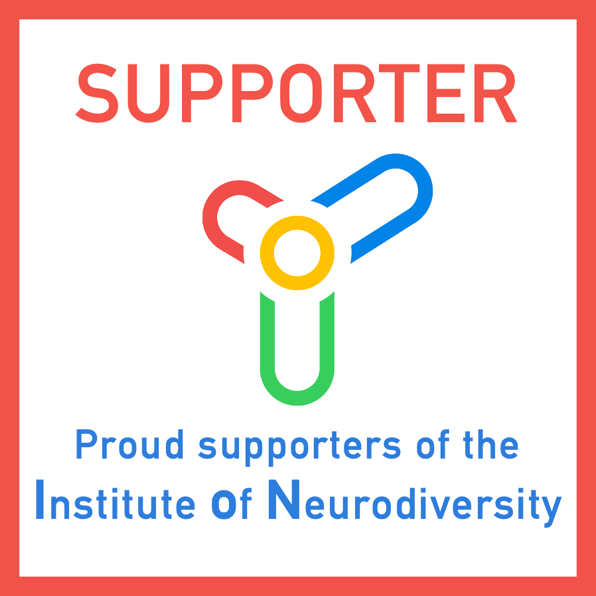Neurodiversity
Who is ION? (From the ION website)
The Institute of Neurodiversity (ION) is a charity headquartered in Switzerland with chapters worldwide.
“ION is a global organisation bringing together neurodivergent people and our allies to form a world-spanning neurodiversity community. Our purpose is to change the world to be equal and inclusive, where neurodivergent people are understood, represented, accepted and valued equally to everyone else.”
What is neurodiversity? (From the ION website)
Neurodiversity describes the idea that people experience and interact with the world in many different ways. There is no "right" way of behaving, learning and thinking.
Neurodiverse groups include ADHD, autism, dyspraxia, dyslexia, dyscalculia, dysgraphia, and Tourette syndrome. People who are ‘neurotypical’ are those whose brain works in the way that society expects.
Neurodiversity describes these natural variations in the human brain, which affect sociability, learning, attention and mood. Judy Singer, the sociologist, coined the term in 1998 and journalist Harvey Blume helped to popularise the word.
The medical profession groups neurodivergent people into diagnostic conditions. ION follows the social model of disability believing that it is society placing limits on us, not our neurodivergence.
We are present everywhere in society, like a vertical slice of the global population. We’re within all:
- socio-economic groups
- racial, national and cultural backgrounds
- industries and professions
- nurseries, schools, workplaces and boardrooms.
We are in each layer and colour, in the glue that binds the layers, and the icing on the top. We are in the candles - shining lights on all parts of society, through our different-but-complementary minds.
From Mac
I was diagnosed with “Autistic Spectrum Disorder” in August 2020. I do not like using the word “Disorder”, so I use the word autistic (each to their own). I decided to share this news openly, and I continue to do so. I happily talk about it during my work and readily answer questions about how it affects me and my work positively and negatively.
The diagnosis led me to much reading, follow-up conversations and reflection. This revealed SO much about the many challenges I had to deal with at school, in the army, in social situations and my work as a Leadership, Management and Organisational Culture consultant.
I know I can be very direct, and I know I can ruffle feathers, but it comes from this inherent need to do or say the right thing, which is what I genuinely believe is a good thing. It is this which occasionally causes people to dislike my approach.
However, when I step back and look at how I am treated when I tell clients of my diagnosis, there is often now an acceptance of how I am. They want to hear what I think as they realise they need to listen to what I believe, not what they hope to hear.
I liken this to going to the doctor. We tell the doctor the symptoms, ask for their opinion, and accept it. We accept this willingly (most of us). Yet, in businesses, it is woefully different. There is a sense of protection against the truth and even denial. They not only don’t want to hear about what’s wrong, but they also don’t want to consider the proposed remedy. As one Head of HR said, “This is just too uncomfortable”.
In my own personal experience, disclosing that I am autistic has received different reactions. Most were positive, but in a few cases, they were negative, and clients decided to stop working with me. “Mental health” still carries concern and even a slight stigma, but autism is not a mental health issue.
As MIND (a mental health charity) says, “Autism is a neurodiverse condition that impacts how you think and respond to the world around you. It’s a spectrum condition, which means it affects people in different ways. It’s sometimes called autism spectrum disorder (ASD) or a ‘developmental disability’. You may also hear the term 'Asperger’s syndrome', but doctors don't diagnose this anymore.”
In organisations worldwide, leadership, management, organisational culture and communication are stifled by political ping-pong so badly that being honest and open with our opinions can lead to discomfort and even retribution.
“Some” leaders and managers get a little protective and upset when you help them understand they are not doing what they should be doing or not doing it correctly. But why ask me if you don’t want to hear my answer?
Great leaders and managers welcome me in, ask me questions, and ask me to facilitate our Emotional Intelligence-based Leadership and Management programmes. They want us to challenge the thinking, actions and behaviour of ALL the people in their organisation, which means theirs too. That is courageous, forward-thinking and the type of organisation we all want to work for.


